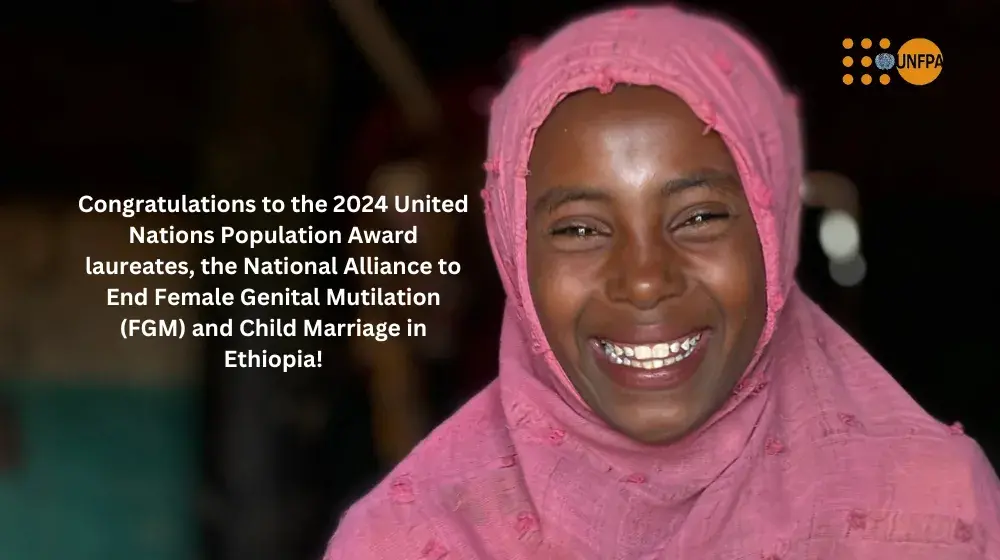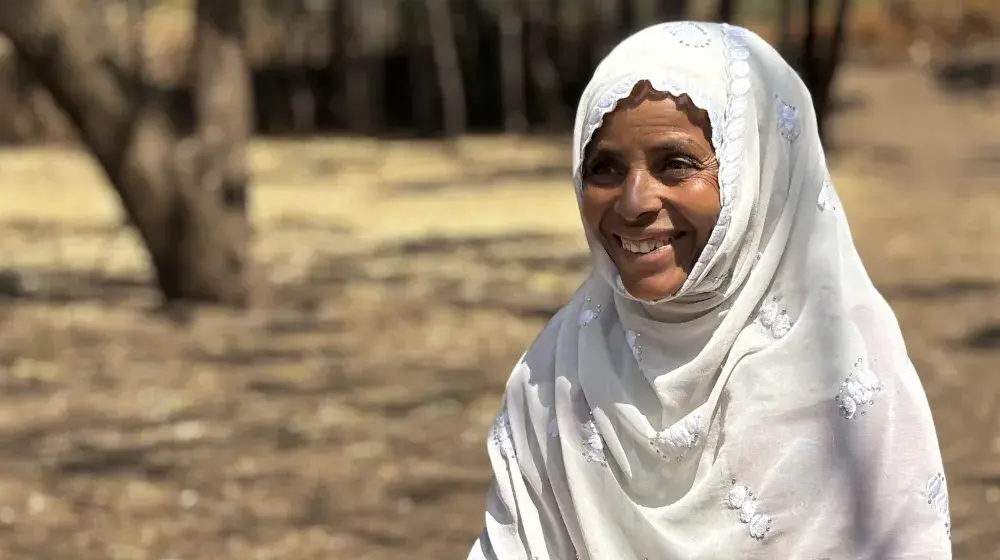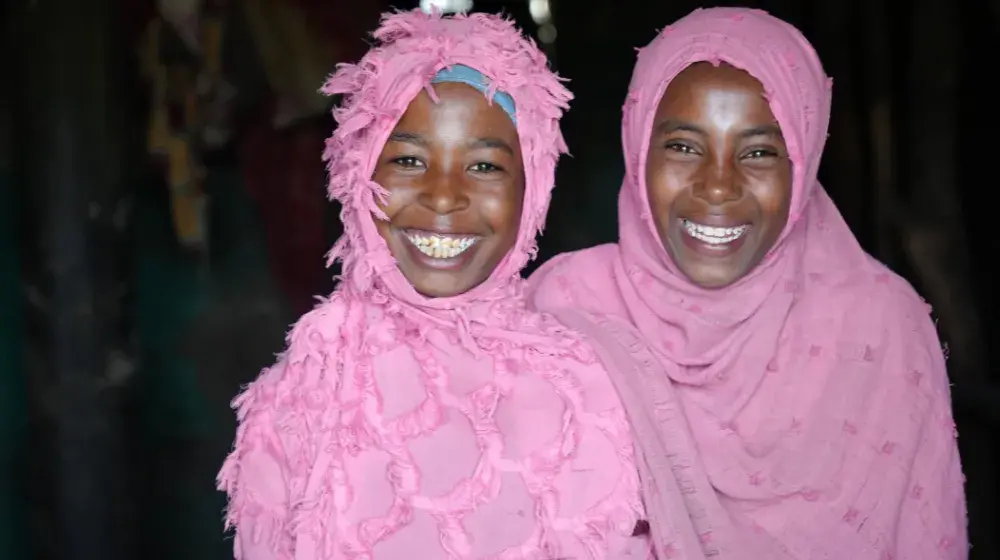Abala District, AFAR REGION - ETHIOPIA: Aisha Dima Abdella is in her forties and has served half her life as a traditional birth attendant in her locality. She recounts about the excruciating pain women and young girls went through due to their FGM as she has attended numerous child births. “Women suffer during sexual intercourse with their husbands and face untold miseries during childbirth due to FGM,” Aisha says. She goes on to say that she also knows about the pains of child marriage as she herself got married at a tender age.
Aisha was already opposed to Female Genital Mutilation (FGM) and child marriage which are widely practiced in her district when the Integrated Programme on Prevention of Child Marriage and FGM started there six years ago. She is now an active participant in the bi-weekly community conversation sessions in her community which is a major component of the programme where different sections of the community sit together to discuss on the practices of FGM and child marriage putting women and girls in harm’s way.
This programme which is being implemented in 13 localities in the Abala District of the Afar Region is funded by the UN Association in Sweden and overseen by the Region’s Women and Children Affairs Bureau. UNFPA piloted the integrated programme in the Afambo District in the Region in 2012. Quite notable successes were registered where all the intervention localities in that district publicly declared abandonment of both practices after four years of implementation.
Much of the credit on the promising successes being registered by the programme go to the efforts of influential members of the community like Aisha. “I am very happy to be part of the social change movement created by the programme. FGM doesn’t serve any purpose other than harming the body of a girl and jeopardizing her life,” strongly remarks Aisha. Not only does she teach members of her community about the harms of FGM and child marriage at social gatherings, but she also goes house to house to do the same.
“I am very happy to see such changes in my lifetime – to see that women are delivering at health institutions and girls are being spared from FGM, “Aisha says. Influential community leaders like her are playing a pivotal role through their teachings in clearing misconceptions around the harmful practices. But social changes are not without their challenges and Aisha is ready to confront in that front too. “If I see the commission of FGM and child marriage I will do whatever it takes to report the matter to the authorities.”
Aisha has also stopped conducting home deliveries and is now supporting the efforts at promoting institutional delivery which remains very low in the Region. “I am working closely with health workers to make sure that pregnant women deliver at health institutions,” she says. She has the numbers to call an ambulance service to take the pregnant women to the Health Centre when their due date arrives.
“I have no fears that the change we are seeing and the gains made will be reversed as the community has owned the change,” Aisha remarks confidently. But she goes on to note that the momentum created by the programme should be maintained to ward off any commission of these harmful practices in secret.
END





